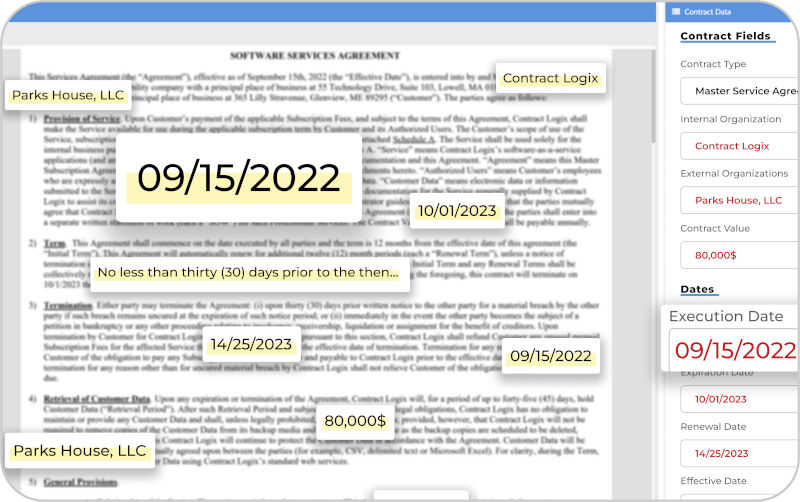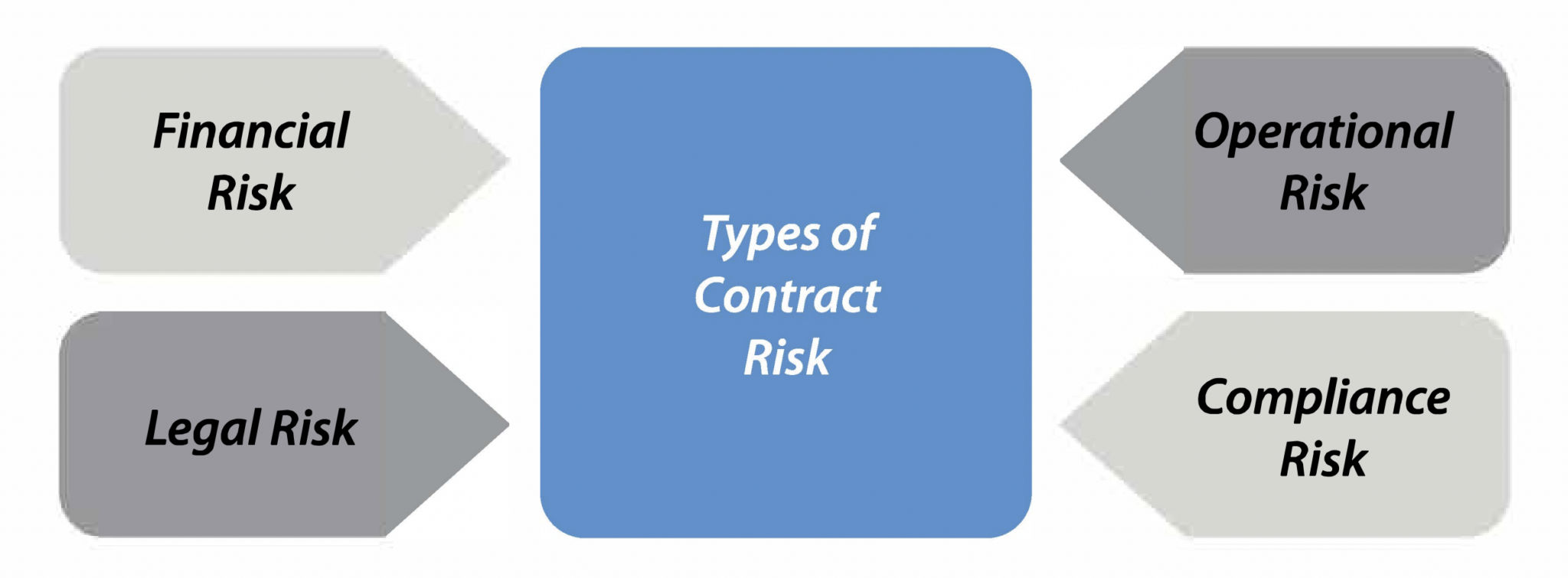The Future of Contract Lifecycle Management: AI and Automation
As organizations expand digital transformation, manual contract processes no longer meet the demands of speed, accuracy, and oversight. AI contract lifecycle management is becoming a strategic priority, giving legal, procurement, and business teams the automation tools they need to reduce risk and optimize every phase of the contract lifecycle.
From data extraction to approvals and renewals, AI is redefining how contracts are managed, analyzed, and executed. This article explores how AI and automation are shaping the future of contract management and what businesses need to do to stay ahead.
Quick Takeaways
- AI helps extract contract data with speed and accuracy, even across large batches
- Digital repositories improve contract visibility and enforce access controls
- Clause analysis tools make it easier to manage risk and ensure compliance
- Automated workflows improve contract execution and reduce manual tracking
- AI supports better governance, stronger reporting, and future-ready processes
Curious how AI reads your contracts? Download the brief on AI-Driven AI Contact Analysis and Data Extraction to see it in action.
AI for Contract Data Extraction
Manually reviewing contracts to extract dates, clauses, and key terms slows down legal and procurement teams. AI speeds this up by identifying and extracting structured contract data automatically.

Using AI-powered extraction tools, teams can capture fields such as:
- Agreement type
- Effective and expiration dates
- Renewal and termination language
- Payment terms
- Parties and signatories
- Risk-prone clauses (e.g., indemnification, auto-renewals)
These tools also support bulk processing. Large batches of contracts, including legacy agreements, can be ingested into a centralized system and scanned for key data without the need for manual review. This improves visibility and ensures that even older documents are included in reporting and audits.
Modern contract management systems allow teams to customize what they extract, so users can focus on the fields most relevant to their business needs. AI identifies those terms across third-party paper and standard templates alike, reducing the burden on legal resources and ensuring data is captured consistently.
Digital Repositories That Do More
Centralized access is a foundational piece of contract lifecycle management, but static storage isn’t enough.
AI-enabled repositories give legal and business teams full control over contract metadata. Instead of digging through folders or relying on email trails, users can filter contracts based on specific search terms or contract types. AI improves the accuracy of these filters by tagging documents with extracted data as they enter the system.
A digital contract repository allows organizations to enforce role-based access and meet high security standards, including SOC 2, HIPAA, and FISMA. Additional features like multi-factor authentication and single sign-on improve access controls while supporting compliance.
This visibility across agreements helps teams act on time-sensitive terms, track performance by vendor or region, and support more informed decision-making.
Smarter Clause Analysis and Reporting
Clause-level data is essential for long-term oversight. For instance, a supplier may include a liability cap that falls outside acceptable risk thresholds. If that clause isn’t caught early or flagged by the system, it could expose the business to higher financial risk.
By using clause analysis tools, organizations can group contracts that contain similar risk terms and prioritize renegotiation or additional review. This is especially valuable during mergers, audits, or policy changes. Teams can also compare language across suppliers or customers to identify where terms may need to be standardized.
When paired with structured reporting dashboards, these insights allow leadership to drill into contract performance and risk posture with data-backed clarity.
AI contract lifecycle management also helps teams understand the language within their contracts, not just the dates or dollar amounts. Clause-level analysis enables legal and compliance teams to identify risk, spot trends, and respond proactively.
For example, AI-based contract review tools can detect:
- Auto-renewal language
- Limitations of liability
- Insurance requirements
- Confidentiality provisions
- Dispute resolution terms
Teams can search, filter, and report on this clause-level information across their full portfolio. They can also set alerts for contracts that contain certain language or lack required terms. This reduces the risk of missing obligations and gives decision-makers clear insight into how terms vary by vendor, region, or business unit.
With over 60 standard data fields and support for unlimited custom fields, users can tailor reporting to their specific business and regulatory needs. These reports give stakeholders the ability to track negotiation trends, measure compliance, and strengthen internal controls.
Workflow Automation for Better Execution
AI and automation simplify contract execution by enforcing repeatable workflows. This includes automatic task assignment, approval routing, renewal reminders, and more.
A visual workflow automation tool uses a drag-and-drop interface to build these workflows without code. Teams can define steps for each contract type and route documents to the appropriate reviewers based on business rules.
This reduces the risk of human error and ensures compliance with company policies. For example:
- A supplier agreement over a certain dollar value can be routed for legal review automatically
- Missing fields can trigger automated follow-up tasks
- Contracts nearing expiration can generate renewal alerts
These workflows help buyers, vendors, and business teams stay aligned and move contracts through the pipeline faster. Notifications, task tracking, and audit trails create a clear record of activity without the need for follow-ups.
Using AI to Strengthen Governance and Reduce Risk
Contract lifecycle management plays a critical role in how businesses manage risk and ensure compliance. By using AI tools to analyze language, track terms, and report on contract status, organizations can reduce the chance of missed deadlines, disputes, or financial exposure.
AI also strengthens governance by helping teams:
- Identify contracts with outdated or non-compliant language
- Standardize templates and approval paths
- Set measurable benchmarks for cycle time, renewal rates, and data completeness

This kind of oversight helps organizations improve internal accountability, meet audit requirements, and better understand how contract processes impact operational outcomes.
What’s Next for AI Contract Lifecycle Management
The future of AI contract lifecycle management will also depend on deeper system integration. AI-driven platforms can connect with sourcing systems, procurement workflows, ERP tools, and CRM software to ensure contract data is consistent across departments.
For example, when a buyer requests a new vendor relationship, a connected system could trigger pre-approved contract templates and flag non-standard terms during redlining. AI tools could also forecast renewal timing and spend based on contract values, performance clauses, or seasonality.
Another emerging trend is using AI to guide negotiations. By analyzing past agreement terms, success rates, and dispute history, the system could recommend fallback language or highlight favorable clauses. These capabilities will help teams author stronger contracts and avoid bottlenecks during review.
As AI models improve, contract lifecycle management tools will become more intuitive and responsive, helping businesses not only manage contracts but improve how they operate.
Build Smarter, Faster Contract Operations with Contract Logix
Businesses are able to do more with their contract data as AI continues to evolve. Future advancements include:
- Predictive analytics to flag high-risk contracts before signing
- Deeper integrations with ERP, CRM, and sourcing platforms
- Intelligent contract drafting suggestions based on previous negotiations
- Real-time monitoring of contract health and performance
These improvements will help teams avoid manual bottlenecks, reduce handoffs, and focus on higher-value work like negotiation strategy, supplier management, and regulatory planning.
The key is to implement a system that supports growth while enforcing structure. Businesses need contract lifecycle management tools that are configurable, secure, and built to scale.
Ready to streamline your contract lifecycle with AI and automation? Schedule a personalized demo to see how Contract Logix can help you work smarter, reduce risk, and improve visibility.
Navigate CLM Success With Contract Logix
Download our Data Extraction Product Brief to learn how you can begin to navigate CLM success by automating the hard work using artificial intelligence with one of the best Contract Management Software’s on the market today


